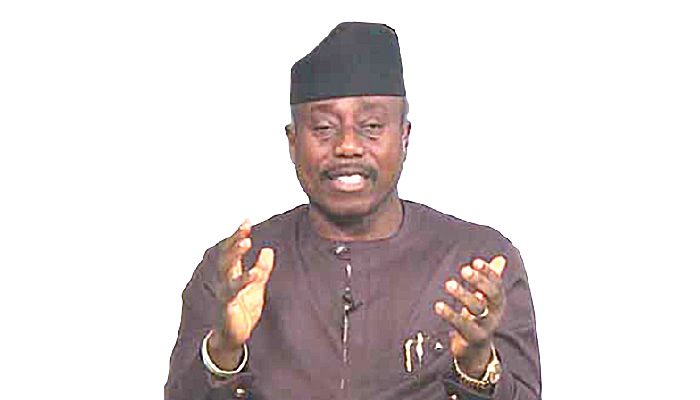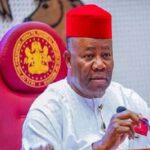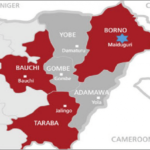
A retired military officer and former Commander of the Special Task Force, Operation Safe Haven, Major General Henry Ayoola, tells AYOOLA OLASUPO some of the achievements the country has recorded militarily so far since independence, its challenges, and the way forward amongst other issues
Nigeria is celebrating its 63rd independence anniversary, how do you think the country has fared in terms of its military strength and advancement over the years?
Of course, the military has come a long way. Don’t forget that at independence, we had just about five battalions in the army but right now we have eight divisions, so it’s a huge growth from what the military was at independence. It is a normal thing anyway because you start small and then grow big along the line. At independence, we didn’t even have our own academy. The Nigerian Defence Academy came into being in 1964, so we now train our officers and that certainly will help us to build bigger and stronger armed forces. Don’t forget that our defence academy is a tri-service one; we produce personnel for the Army, Navy, and Air Force. It’s been a good advancement for the armed forces.
The military defends the territorial integrity of the country, and till date, that integrity has not been violated, except for Boko Haram that at some point took control of some areas in the North. Do you think the military gets the kind of appreciation it deserves?
There are still a lot of misunderstandings by some parts of the populace who do not understand the role of the military as to be able to appreciate them enough, but in recent times, a good number of Nigerians have shown their appreciation knowing the ultimate price that military personnel are paying with their lives every day. Anybody who listens to the news will hear how many soldiers are dying during encounters with one thing or the other. Nigerians have learnt to appreciate their armed forces better than before.
As a military officer, even though retired, how would you describe the roles played by the military in the early years of Nigeria’s independence?
The military’s intervention in the politics of the nation has its pros and cons. The very first one on January 15, 1966, is the one we can really say started the trouble in Nigeria. When we look at the generation of leaders available, I think they were more prepared for leadership than the subsequent ones. The level of exposure, knowledge and experience they had cannot be compared with the likes of Obafemi Awolowo, Nnamdi Azikiwe, Tafawa Balewa, and the Sardauna of Sokoto (Ahmadu Bello) and other leaders that were removed from power then. The true side of it is that some nations like South Korea developed very fast under military regimes. For us, we have not maximised that kind of benefit. Parts of the infrastructural development in Nigeria are still traceable to the military regime and basically, one of the advantages of the military is the low cost of governance. That is inherently so in a military regime because we don’t have the legislature at all. When you think of the cost of running the National Assembly, the state assemblies, and all of that, if those are not there, imagine what you would be saving. Other than that is the fact that military officers are certainly more disciplined in terms of their character cultivation and prudence. Certainly, it is not only because of that. It is because the numbers involved are also very minimal. In the real sense, the number of personnel involved in the military regime is less than five per cent of the military because most of the other players are still civilians. The military just takes the dominant appointments but the bureaucracy is still run by the civilians and a lot of the appointments are even taken by the military. We had some civilian ministers under them at different times so it is not all military. It just happened that the Head of State was a military man at the time and most of the governors were military. Basically, it is not like politics where one minister will bring a whole bandwagon of people to work with him in civilian rule. It is actually under that kind of setting that we should have had accelerated development in terms of infrastructure, industrial development, etc., but we need to do better. When you look at our peculiar environment unlike the experience of South Korea where they were able to accelerate their development so much under a military regime and it was more or less a blessing to them, that is not to say that a military regime is anything to desire. It is still an aberration anyhow and there is no benefit that can be derived from it.
Many Nigerians blame the military coups for the setbacks the country experienced till date, given the coups in the past. Do you think heaping the blame on the military is misplaced and how does that make you feel?
It is difficult for me to even think of anyone now. The military has left the stage for 24 years now, so should we consider it to be better? The military is part of the Nigerian society. There are peculiarities of the military, some of which give us some advantages and benefits. At least, we have seen the difference between the military and civilian rule. How some of them turn our common wealth into their personal wealth. The difference is clear. In the military, you see a deep sense of patriotism and the willingness to lay down your life than the civilians. That is an eloquent demonstration of extreme patriotism. You can’t take that away from the military and it is common to them anywhere in the world. When you join the military, you know you have the choice of being a business man so you are not expected to be as rich as Aliko Dangote. That means you should know that you are going to live an average life, at least to be able to train your children and get the best of opportunities that come your way.
What lessons can be drawn from Nigeria’s independence?
Independence is a desirable thing for any set of people, but what do we make of independence? We should ask ourselves. Of course, there is something called national pride and sovereignty that will certainly make any nation want to be independent, even if it was not a better option at the time, it wouldn’t really matter. That means you will be in charge of your own destiny, especially for national pride, sovereignty and other things. Thereafter, when you have had independence, you will move forward from there. Of course, it is obvious to everybody that we are better than what we have done so far and the major lesson from there is the rigging of leadership. We have not been able to craft a system that will bring forth the right set of leaders to lead us. It is the quality of leadership that will show how to maximise the benefits of independence. Two major facts that determined how quickly nations got their independence were the quality of leadership and the level of technology. Even before we were colonised, it was also a result of that. Nations, kingdoms and ethnicities that had strong leadership were able to resist the colonisers. It is the same thing if we were begging to get our independence, because when you are given, you can now handle your destiny by yourself.
63 years after independence, insecurity has remained a serious challenge, why has the military been unable to solve this problem?
The challenges we have are not security challenges, instead they are political and we are not ready to call it the real name. We are not addressing it. We are just dodging it and that is part of our problem. Why we have not made much impact is because when you have not defined the problem, how do you solve it?
Does that mean that the insecurity challenge has a political undertone?
Of course, I have said it many times. The bandits who are giving us problems, are they Nigerians? How did they get here? Who brought them and are they not known? Is where they came from not known? We are not ready to address the real issue. We are just trying to cut the tree by cutting the branches instead of uprooting it. How long will it take to do that? Until we face the real issue, we are just wasting the efforts of our armed forces. Those who are responsible for the problem know what they are up to, and how they are brought in so if they want to solve the problem, they should start from the root.
Some people have said issues like unemployment, illiteracy and porous borders are the enablers that have to be addressed for insecurity to be a thing of the past, do you agree with that?
In issues like this, we have the root and the remote causes. Yes, all of these can be regarded as remote causes or conditions precedence but they are not the main causes. It is when we want to explain away the real issue that we focus on those ones. That is my position and from what I know, they will tell you about desertification, the Lake Chad is drying up and so on but those are not the main causes.
What is your assessment of the civil-military relationship, given that we still see harmless citizens being harassed by soldiers needlessly?
No, that has reduced drastically. When you take an example of one bad egg somewhere, one cannot use that to generalise the state of things. The average soldier is very respectful, even by their training. Soldiers are the most respectful people we can see because the military itself is respectful but when people are on edge and something triggers them to react wrongly to some impulse somewhere, we see such and that is very scarce. I can see that Nigerians have increasingly become respectful and appreciative of their armed forces. It is known that the members of the armed forces appreciate that and have become friendly with the populace. So far, it is an improvement we can see in Nigeria.
Many military personnel have sacrificed their lives for peace to reign in this country, do you think Nigeria honours its soldiers, either fallen or alive, well enough?
There are standards that are put in place for that. I mean people will always ask for more but the statutory welfare scheme is an administrative provision there but they can be improved upon, no doubt.
Availability of funds has posed a challenge for military funding, how do you think Nigeria can strike a balance between the need for increased funding and budget constraints?
I have written papers in this direction before. No nation funds its military by just budgetary allocation alone. We have made suggestions about the fact that there should be something like a security trust fund for even defense, research, and development for such specialised institutions. It is a means of increasing spending for the military. No nation will be able to adequately fund its military with just budgetary allocation alone.
Do you think there are milestones Nigeria should have recorded, militarily, since independence that it has yet to, maybe in terms of welfare package, because we hear that soldiers are still poorly paid?
Milestones by the military are set by the military itself, and of course, they will always do that consistently with the availability of funds and the level of technology within the country. The military is part of the society and cannot just advance alone on its own and other sectors are left behind. It doesn’t happen anywhere, so the advancement of any military is always a function of the development of that nation itself in all other things, especially in technological areas.
What do you think Nigeria should do differently for its military before the 64th independence anniversary?
Nobody will even be asking for anything with the state of the nation. What is important now is for the nation to even get a stable economy and become productive so that the naira can appreciate before the military starts asking for anything.





